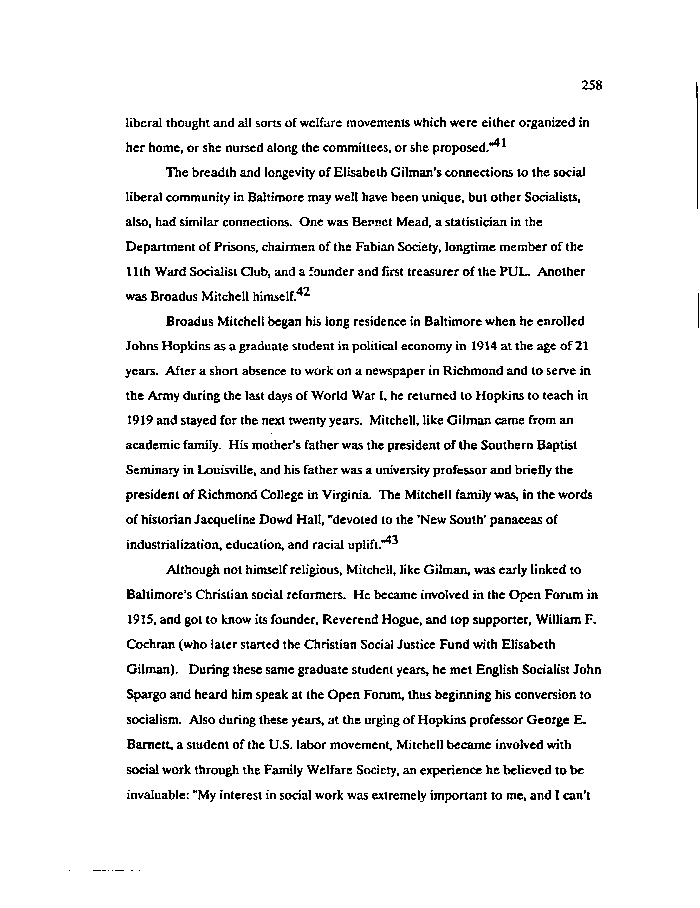|
258
liberal thought and ail sorts of welfare movements which were either organized in
her home, or she nursed along the committees, or she proposed. *
The breadth and longevity of Elisabeth Oilman's connections to the social
liberal community in Baltimore may well have been unique, but other Socialists,
also, had similar connections. One was Bonnet Mead, a statistician in the
Department of Prisons, chairmen of the Fabian Society, longtime member of the
llth Ward Socialist Club, and a founder and first treasurer of the PUL. Another
was Broadus Mitchell himself.
Broadus Mitchell began his long residence in Baltimore when he enrolled
Johns Hopkins as a graduate student in political economy in 1914 at the age of 21
years. After a short absence to work on a newspaper in Richmond and to serve in
the Army during the last days of World War I, he returned to Hopkins to teach in
1919 and stayed for the next twenty years. Mitchell, like Oilman came from an
academic family. His mother's father was the president of the Southern Baptist
Seminary in Louisville, and his father was a university professor and briefly the
president of Richmond College in Virginia. The Mitchell family was, in the words
of historian Jacqueline Dowd Hall, "devoted to the 'New South' panaceas of
industrialization, education, and racial uplift. 3
Although not himself religious, Mitchell, like Oilman, was early linked to
Baltimore's Christian social reformers. He became involved in the Open Forum in
1915, and got to know its founder, Reverend Hogue, and top supporter, William F.
Cochran (who later started the Christian Social Justice Fund with Elisabeth
Oilman). During these same graduate student years, he met English Socialist John
Spargo and heard him speak at the Open Forum, thus beginning his conversion to
socialism. Also during these years, at the urging of Hopkins professor George E.
Barnett, a student of the U.S. labor movement, Mitchell became involved with
social work through the Family Welfare Society, an experience he believed to be
invaluable: "My interest in social work was extremely important to me, and I can't
|

